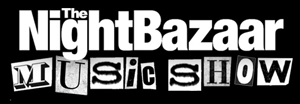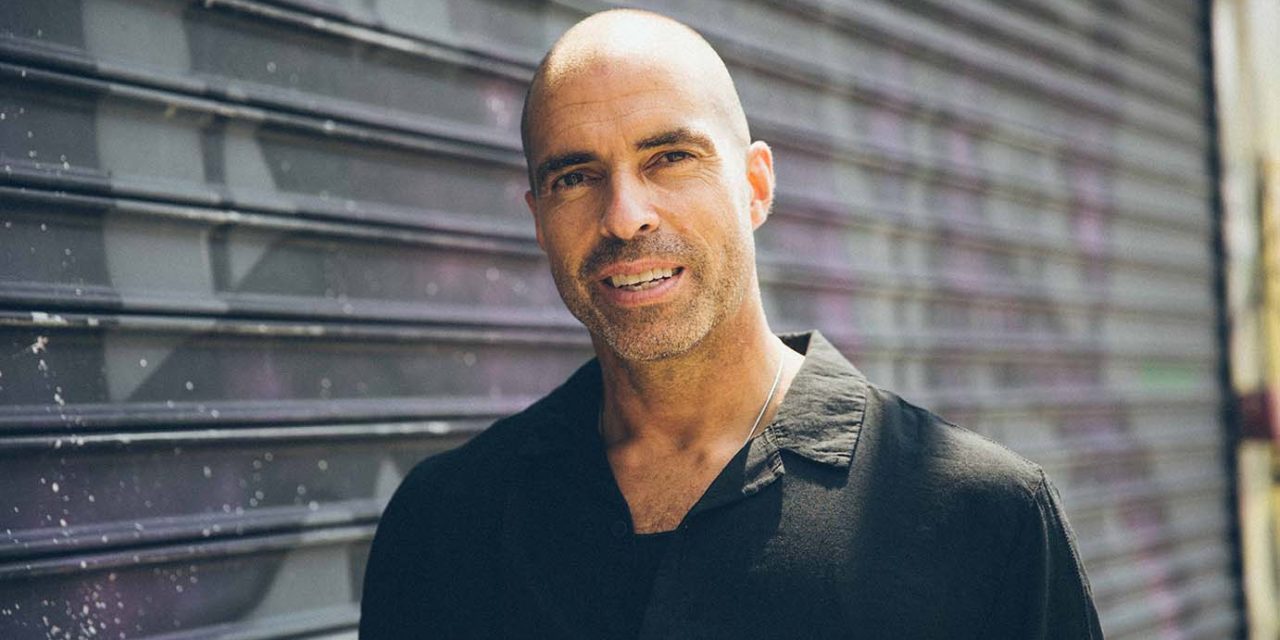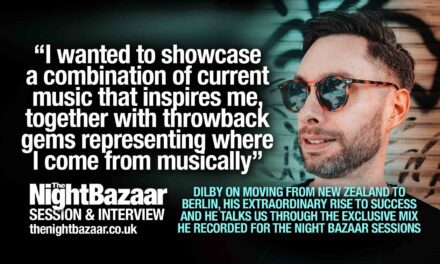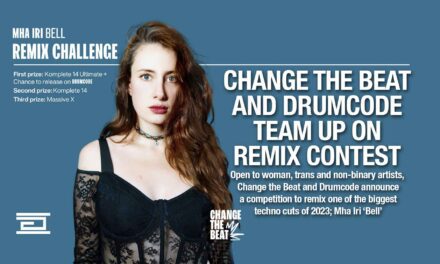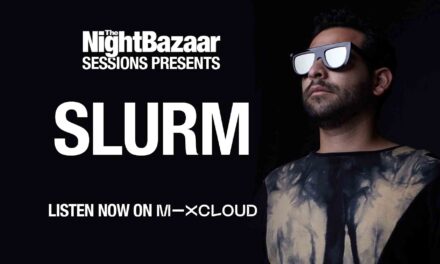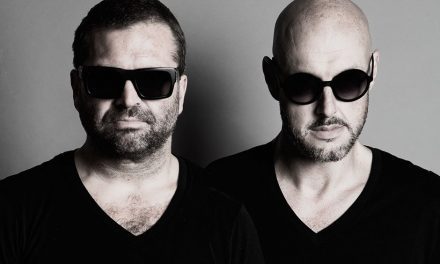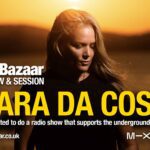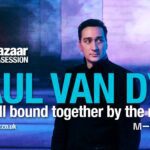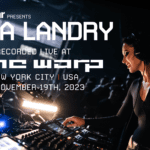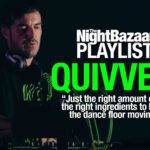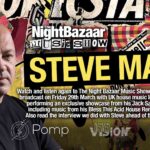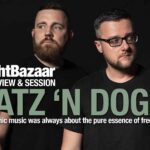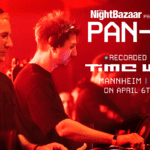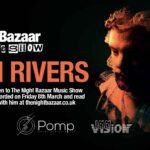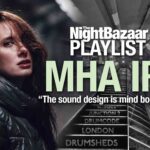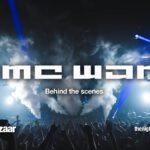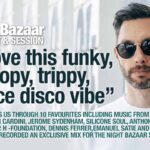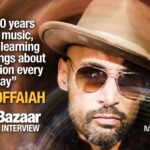TECHNO continues to dominate the electronic music scene across the world, infecting, influencing and inspiring other genres and constantly evolving in tune with the advance of technology.
There are many veteran artists together with up and coming pioneers who are responsible for driving the music forward, inspiring each other, sharing ideas and playing a part in developing the technology of the future working alongside forward thinking sonic alchemists such as Native Instruments, Pioneer and Ableton who continue to revolutionise the way electronic music is produced and performed.
One such artist is techno pioneer Chris Liebing. We caught up with him recently to learn more, to chat about his latest long player Burn Slow and Time Warp’s 25th anniversary in 2019.
Every set you play is unique due to the technology you now use to perform your sets. Can we start by talking through the process of going from playing in a traditional way using two turntables and mixer to where you are today with the set up you now use. Was is a gradual process?
It’s funny because on my weekly AMFM podcast / radio show I have just released a mix that I have recorded at the Omen club in 1995, using two turntables and a Rodec MK 180 mixing desk. The set up I am using now is obviously very different, although the goal I have been trying to achieve using this set up has always been the same. The technology has just been constantly developing to reach this goal in a better way. I would define that goal as creating a soundscape in a club or a festival that gets people dancing, that gets people on a journey, where you have the chance to create seamless transitions between tracks in a way that maybe no-one even notices on the dance floor, unless you want them to notice. Obviously that was much harder with two turntables, because at some point every record comes to an end and not all tracks are produced in a very DJ-friendly way, with two minute outros or two minute intros.
When you listen to that old Omen set I have just released, you will notice that there are way more breaks in this set, way more different episodes – if you would like to call it like that – while today it is possible for me to essentially mix four tracks on top of each other if I wanted to and add effects and loops on them. And yes, it was a very gradual process. My aim was always to create a soundscape, already from the early 2000s on, when the computer technology was so advanced that you could use time-coded vinyls to play digital tracks from your computer, which we called Final Scratch back in the days. Not only the software producers, also the hardware producers were working hand in hand with DJs to gradually develop systems that made it easier for them to create certain vibes.
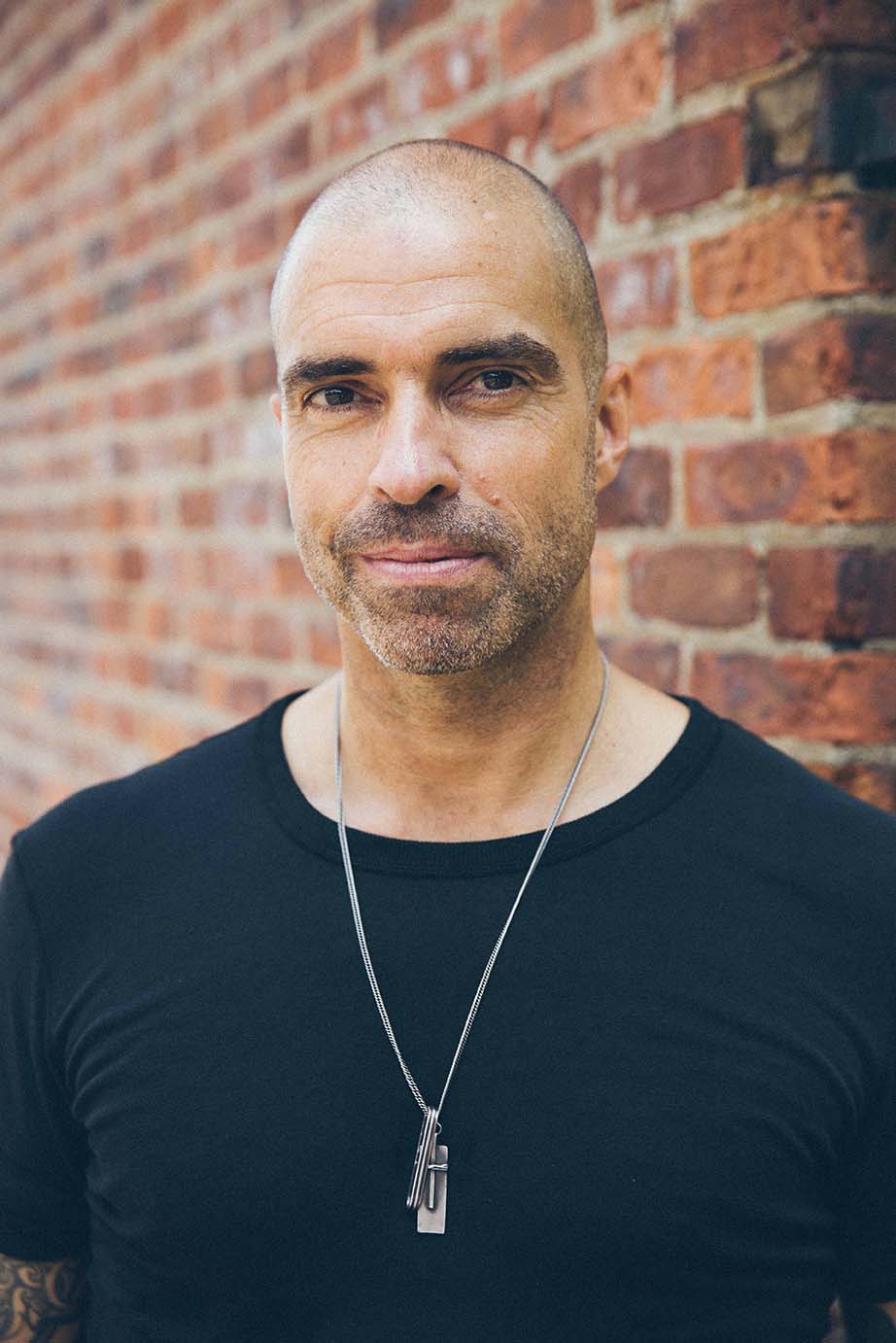

Companies like Native Instruments have been essential for this evolution to happen. How have companies like this been instrumental in the evolution of electronic music in general?
Absolutely, they have been. Companies like Native Instruments, Ableton Live, also Allen & Heath and countless others have been working very closely with artists in the past 20 years to develop the software and hardware that we are using. The latest very good example is the Model 1 mixer from PLAYdifferently, that has basically been under the lead of Richie Hawtin, the input of ten DJs and the help of Allen & Heath as a hardware company. So yes, those companies do play a big role in this development, but hand in hand with the artists, which is an essential point.
You have worked with Native Intruments for many years giving advice on the development of their FX and products. How important has this relationship been to your evolution as an artist?
It has been very important, as these are the products you rely on as an artist to deliver your art. Of course we could still – and there are many people who do this in an amazing way – play with two turntables and a mixer. I could do that too if I wanted to. Even with my current set up I could play with just two turntables and that´s the beauty of this set up. That’s the beauty of this technological revolution, that the possibilities are becoming more and more, but that you can also always go back and limit yourself if needed.
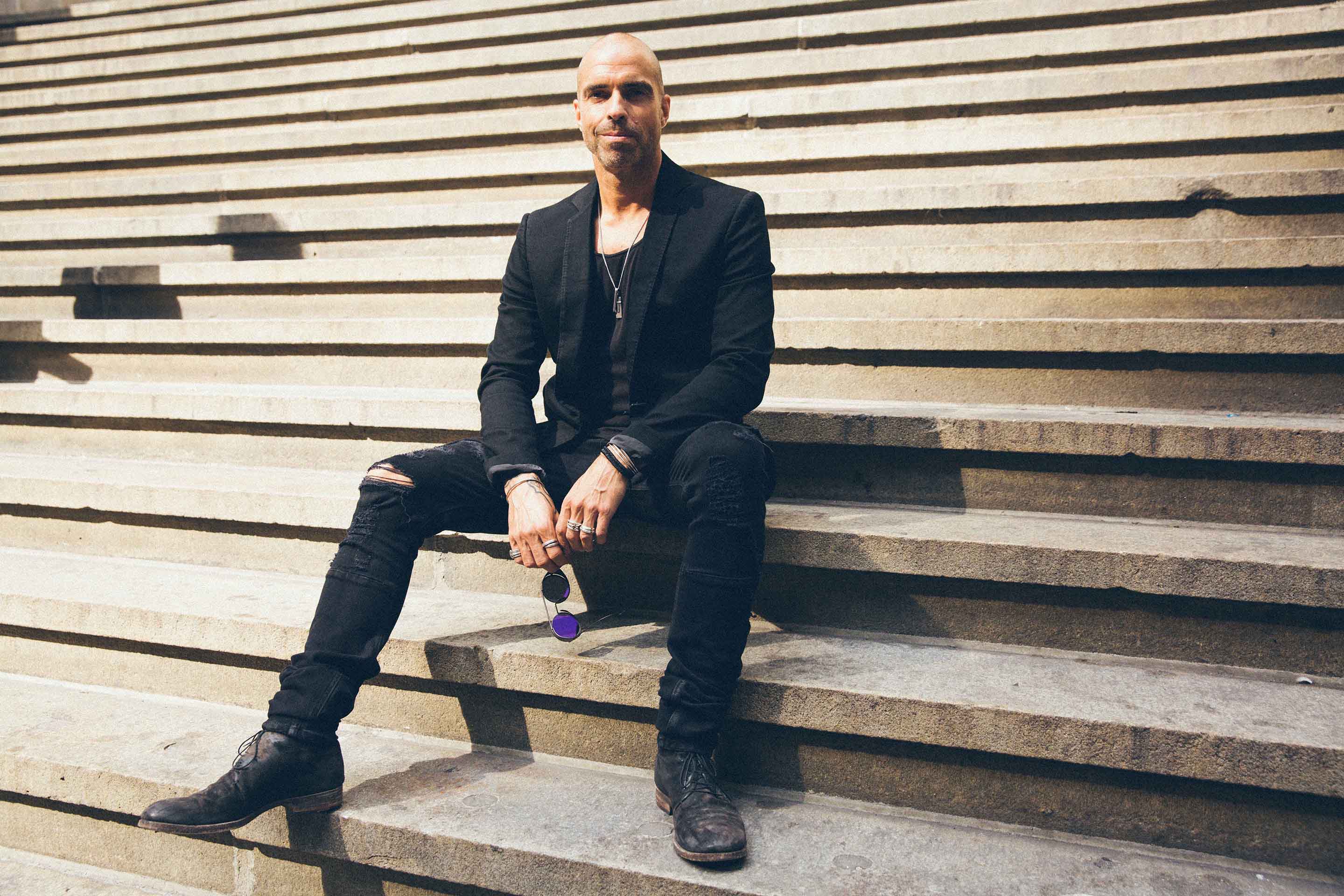

You have said producers must hate you as you never play their tracks as they intended. Do you think there is still room for the old style of DJing in terms of playing tracks in full as the producer intended?
Absolutely, just look at DJs like Sven Väth. I would call this an old style of DJing. You probably have a little bit of a different track selection, as I sometimes play a track of which I don’t really like the beginning or the end and just like the middle part of it. Maybe I don’t like the kick drum, so I layer it with another kick drum. But if there are tracks that I really like and I think that they are so extremely well produced and suit my sets, I completely play them in full, interfering maybe just a little bit in whichever way the situation requires. I think that’s the beauty of electronic music, taking it apart, putting it back together, and all that live, direct and in real time.
CLR was an inspiring platform for up and coming artists. Was winding the label down a desire by yourself to put the focus more on you as an artist? Certainly with your new album it feels like you are very much expressing a different side to you?
Yeah, I actually do express a very different side of me, although I would almost say that deep down it is still kind of the same vibe and atmosphere that I am looking for since I started. Obviously the album is not a selection of ten techno tracks. If I wanted to do that I just would have continued to release music on the label. Winding down CLR was not an easy process. Letting go of something like this is not easy, so I also did not necessarily let go of it, I just kind of keep it on hold at the moment. I might come back with it at some point. I felt the urge to work on an album and I knew I needed time and space for this. Taking care of a label with a lot of artists and releases is a challenging thing and something that also bares a lot of responsibilities towards those artists. I wanted to be fair and tell them that I probably won’t be available as much as before over the course of the next two or three years as I will be working more on my own music. That was a pretty hard decision, but I am happy with the outcome and we’ll see what the future brings.
You recently released your album Burn Slow. Were you happy with how it was received?
I was not only happy with how it was received, I am extremely happy about where it was released, on Mute Records, one of my favourite labels of all time. I am really glad to be able to show this – what you might call – different side of myself, but I also see this just as a beginning. I will be starting to work on a new album early next year already and it also inspires me to do new techno now as well. It’s kind of an experiment to do all those different styles next to each other, but I don’t see it so much as a challenge as it somehow comes natural. Maybe there is also some sort of a crossover going on between album music and club music.
The album feels like a very personal long player and may surprise some of your fans expecting a dance floor focused album. Can you tell us a bit about your approach to making the album and the original idea behind the project?
The idea behind the project was exactly NOT to do a dance album. Obviously I did not want to avoid dance tracks, there is definitely music on there that you as a DJ can play at clubs and at night, it´s just that I had the urge to produce something that I would be happy to listen to myself from the very beginning to the very end without getting bored. Something that would put me on a journey while I am sitting on a couch or on an airplane or in a car. That was basically the idea behind it and I tried to accomplish that by not thinking too much about how it is supposed to sound.
I rather built a certain environment for myself, to be able to produce the album in a way that allowed whatever the moment brought and whatever I liked in that moment to come out, without any limitations and without thinking that it needs to have a certain BPM or a certain beat. Anything was possible and that is the beauty of it. As a DJ I sometimes tend to limit myself, or I used to limit myself in my studio work, focussing too much on the dance floor and I realised that there is way more that I want to experience musically than only a 4/4 beat on the dance floor. Not that I don´t enjoy that and not that this won´t come back, but I also really enjoy this kind of work beyond limitations and there is definitely more to come.
Burn Slow started off as an instrumental album but I understand vocals were added along the way taking inspiration from vocalists such as Polly Scattergood and features Gary Numan on Polished Chrome. Can you tell us a little but about the process of adding the vocals such as with certain tracks like And All Went Dark with Polly which talks about mental health and the Polished Chrome with Gary?
Yes, in the beginning the album was completely produced as an instrumental album, but I always knew that I wanted to work with vocals. I wrote those lyrics for Polished Chrome and No Regrets myself and asked Aleen who is a Frankfurt based singer and for some funny reason Gary Numan who is an all time hero of mine from when I grew up listening to music, and I was glad that both of them agreed to perform my lyrics on these tracks, as well as Polly Scattergood, Miles Cooper Seaton and Cold Cave.


In the case of Polly and Miles I worked together with them to come up with the lyrics, in the case of Cold Cave it is a transcript of an old Alan Watts talk, one of my favourite philosophers, who basically gives the introduction of the album and sets the mood. The lyrics that are in the tracks of Miles Cooper Seaton and Polly Scattergood are reflecting moments in life when you are not in the present moment and when life takes over, your mind takes over and things become stressful and worrisome. It was the time when Chris Cornell committed suicide and people started to talk more and more about mental health in the music industry. It is a tough way of life to be on the road so much, it is very easy to fall into depression and mental health issues and I wanted to address that on this album. I think that you fall more easily into depression, the more you are not in the present moment. Being in the present moment essentially prevents you from any way of negative thinking and getting drawn into problems of the past or problems of the future. So that suited the whole idea of the album quite well.
Speaking of Gary Numan, I assume he must have been influential in your career? What other artists have inspired you along the way?
Off the top of my head I would obviously, right away say Depeche Mode. I do believe that Dave Gahan and Martin Gore are one of the singer songwriter combinations of our lifetime, easily together in the bracket of John Lennon, Paul McCartney, Freddie Mercury, Brian May and people like this. Essentially the label Mute, where my album was released as well, was a very, very influential label in my youth, with bands like Nitzer Ebb and DAF, but I was also very influenced by indie rock and bands like The Cure. I think that´s where this kind of dark and melancholic idea and vibe I have in me comes from.
You remixed Depeche Mode track Going Backwards last year. This must have been a huge buzz to do. Can you tell us how the opportunity came about and how you approached making both of the remixes?
Oh, it was a huge, huge buzz and the interesting thing was, that both this and my album would be released on Mute. I was signed to Mute and Depeche Mode wanted a remix from me which came in the same week in May 2017. I remember that really well. I knew that Depeche Mode obviously wanted to have a club mix, and to be honest, the club mix took me way longer than the one that I call Burn Slow Mix. I was just listening to the vocals written by Martin Gore, sung by Dave Gahan and imagined my own beat behind it. Then I basically just did this beat with those vocals. To be honest, the Burn Slow Mix was done within a day and I didn´t really have to go back to it, while the techno mix took me a little longer to work it out, as – like I mentioned before – you were working with certain limitations, meaning you had a certain tempo and a certain beat to work with and you basically had to fit the lyrics and the vocals in there. So the Burn Slow Mix was actually way easier for me to do.
I just wanted to chat a little bit some of the events you play such as Time Warp which is the perfect marriage of music and technology. Do you approach playing events like this differently to a smaller club show and do you have any personal favourites in the dance music calendar?
I always feel that I am extremely blessed and happy to be able to do all of it. I am really, really happy and excited to play festivals like Time Warp – especially Time Warp, because you meet a lot of friends and there is a lot of history behind it. They will celebrate 25 years of Time Warp next year. But also little clubs have a certain magic and the beauty of it – to come back to the system I am playing with – is that it allows me to very spontaneously, in real time, adapt to the situation around me. So if you would wake me up and tell me that I would have to play in front of 5.000 or 10.000 people now, I could do it, as well as I could play a six hours set in a small club. I think this is what the beauty of DJing is and I could not really decide on which is better, playing small or big venues. I think it’s great that you can do the combination and sometimes take the inspiration you have in a big venue to a small club and vice versa.
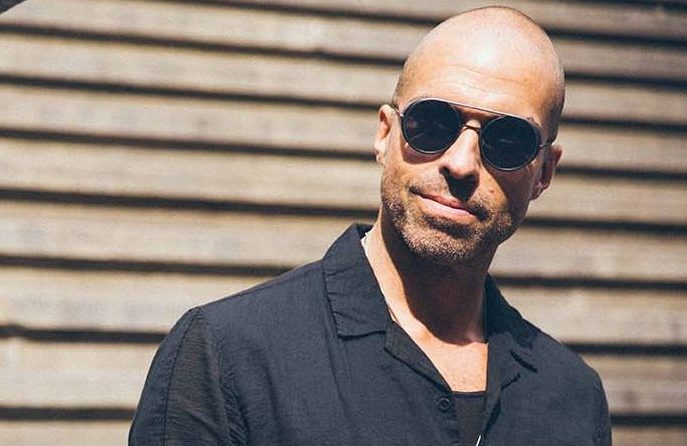

How do you juggle family life with touring and keep healthy with such a hectic schedule?
I have to admit that it is a challenge. It is quite a challenge and family life suffers from it, it definitely does. But at the same time family life helps you to stay grounded, especially my children help me to stay grounded and to have one foot in some sort of a “normal life”. But everything else is quite hectic and you have to be balanced, that´s at least what I think. You have to have a good time when you are on tour, but you also have to do your exercise and workout and you also have to stay mentally healthy. That means that you are pretty busy the whole week and beyond, but I would´t wanna change a thing.
Thank you very much!
Chris Liebing – Burn Slow is out now on Mute




